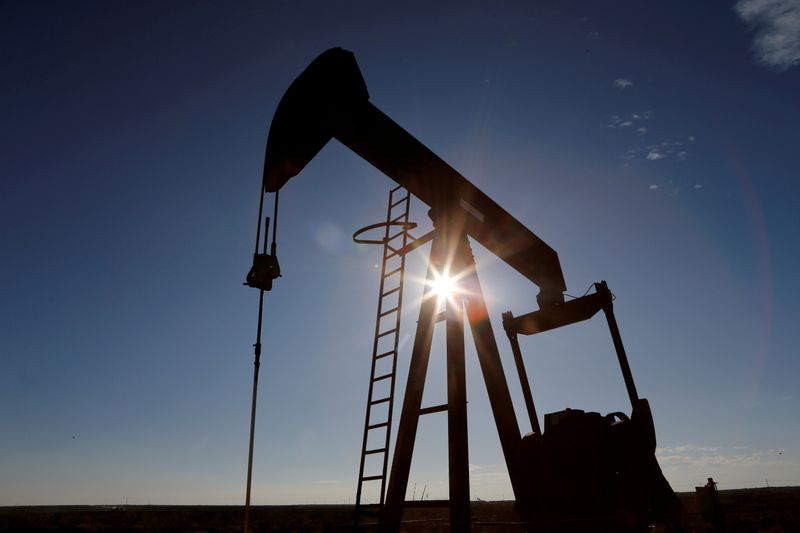By Yuka Obayashi
TOKYO (Reuters) - Oil prices eased on Thursday after OPEC and allies such as Russia agreed to taper record supply curbs from August, though the drop was cushioned by hopes for a swift U.S. demand pick-up after a big drawdown from the country's crude stocks.
Brent crude (LCOc1) fell 33 cents, or 0.8%, to $43.46 a barrel by 0646 GMT, and U.S. West Texas Intermediate (WTI) crude (CLc1) dropped 42 cents, or 1.0%, to $40.78 a barrel. Prices rose 2% the previous day, helped by the U.S. crude inventories drop.
The Organization of the Petroleum Exporting Countries (OPEC) and its allies, known as OPEC+, agreed on Wednesday to scale back oil production cuts from August as the global economy slowly recovers from the coronavirus pandemic.
OPEC+ has been cutting output since May by 9.7 million barrels per day, or 10% of global supply, but from August, cuts will officially taper to 7.7 million bpd until December.
"Some investors took profits after the OPEC+ decision, but a big draw in U.S. crude provided some support," Kazuhiko Saito, chief analyst at Fujitomi Co said.
Data from the Energy Information Administration showed U.S. crude inventories fell 7.5 million barrels last week, shrinking much more than the 2.1 million-barrel drop expected by analysts in a Reuters poll. [EIA/S]
Despite the official OPEC+ accord, Saudi Arabian Energy Minister Prince Abdulaziz bin Salman said production cuts in August and September would end up amounting to about 8.1 million-8.3 million bpd, more than the headline number. That's because countries in the grouping which over-produced earlier this year would compensate by making extra August-September cuts, the minister said.
Oil prices are expected to remain boxed in as more supply from OPEC+ countries will likely be absorbed by recovering demand, said Tsutomu Kosuge, president of commodity research firm Marketedge Co.
"I expect Brent will stick to the tight range between $40.50-$46.50 for the next month or so," he said, adding rising tensions between China and the United States may weigh on market sentiment.
U.S. Secretary of State Mike Pompeo took fresh aim at China on Wednesday, saying the United States would impose visa restrictions on Chinese firms like Huawei Technologies [HWT.UL] that he accused of facilitating human-rights violations.
Rystad Energy also predicted that oil prices will stay where they are for the rest of 2020 as any uptick will hurt already struggling refining margins and negatively impact the most-needed recovery in refinery runs, it said in a note.
International Energy Agency Executive Director Fatih Birol said on Wednesday that global oil markets are slowly rebalancing after the shocks seen during the coronavirus lockdown, with prices expected at about $40 per barrel in the coming months.

